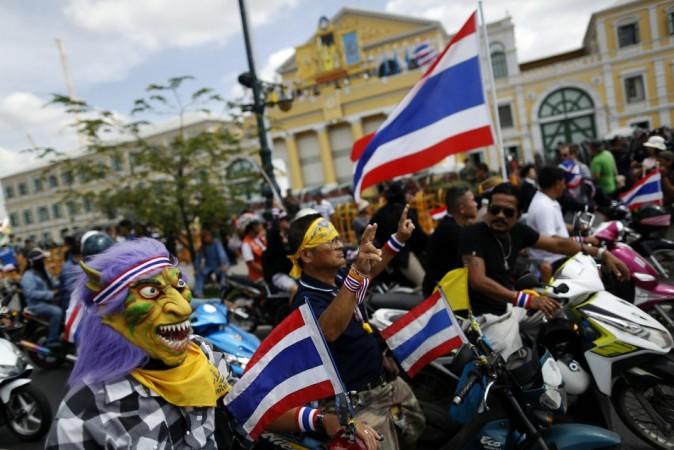
The anti-government sentiments in Thailand has receded over the days with the number of protestors dwindling, but the leader of the demonstrators who is poised to remove Prime Minister Yingluck Shinawatra from her position, has called for a fresh round of marches in an attempt to step up their demands.
Suthep Thaugsuban, the leader of the protesters and former deputy premier called for marches along the main roads in central Bangkok on Thursday and Friday, ahead of a big rally scheduled for Sunday.
"We will chase Yingluck out this Sunday after she made it clear she will not step down as caretake prime minister," Thaugsuban said on Tuesday.
Confronted with a huge gathering of protesters Yingluck, earlier in the month, dissolved the parliament and called for a fresh election on 2 February in order to deal with the crisis.
The protestors have relentlessly protested to have Yingluck removed from Thailand's politics altogether, after she was allegedly controlled by her brother Thaksin Shinawatra, who was ousted in 2006 by the military for his political notoriety.
"We will walk until the number of people who come out to join us outnumber those who elected Yingluck. We will march until the military and civil servants finally join us," Suthep told reporters on Tuesday.
Will Yingluck Back Out?
Yingluck Shinawatra won by a landslide victory in 2011, thanks to her overwhelming supporters in the populous, rural north and northeast Thailand. The ousted former PM was admired by rural folks for the cheap healthcare and other policies brought in, while he was in power. It was a default favour Yingluck amassed from the rural population thanks to her brother.
Analysts believe that even if the election takes place on 2 February as scheduled, there are no reasons to believe that it could necessarily lead to Yingluck's exit. Her call for a snap election seems to be mainly based on the fact that she could rise again to power in a legitimate democratic election, which the international community would not be able to rebuke.
The protesters who gathered in a number as large as 160,000 in the recent all-out attempt to remove Yingluck are well aware of what the results of the snap election could be and are poised to push through electoral reforms before a general election is held.
Demonstrators have said that Yingluck should permanently step down and must be replaced with an unelected "people's council", a proposal that has sent shock-waves of fear across the world, as it could potentially mark the end of democracy in south Asia's second biggest economy.









